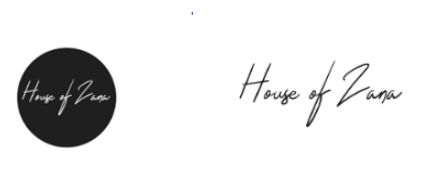A recent UK trade mark opposition judgment has attracted considerable attention, for good reason.
THE PARTIES
Amber Kotrri, an individual based in the UK, filed an application on 17 December 2020 to register a series of two marks comprising the words HOUSE OF ZANA (stylised) in class 25 for "clothing" only.
The series trade mark application is depicted below:

Image source: trademarks.ipo.gov.u
This trade mark application was opposed by a clothing giant, Industria de Diseno Textil (Inditex), the owners of the famous Zara brand. The case has been portrayed in the media as your classic David v Goliath battle.
THE TRADE MARK OPPOSITION
Inditex relied on UK trade mark registrations and a likelihood of confusion. It argued that the new HOUSE OF ZANA mark would "bring to mind" the ZARA mark. It claimed that the new mark would "without due cause" take "unfair advantage by free-riding on the coat-tails of the reputation of the ZARA mark, benefiting from its power of attraction and gaining attention and marketing by virtue of [Zara's] marketing efforts."
Inditex claimed that use of the ZANA mark would cause detriment to the reputation and distinctive character of the ZARA mark. It suggested a " dispersion of the captivation and hold in the public's mind" of the ZARA mark. Zara's barrister colourfully described the name ZANA as being "one small brush mark" away from ZARA.
Kotrri, who is married to an Albanian, has always insisted that she chose the name ZANA because it is the Albanian word for fairies. It is important to note that Kotrri represented herself in this matter.
THE JUDGMENT
The tests
The hearing officer, Matthew Williams, referred to a number of leading EU cases on similarity. He listed a number of the well-established tests and considerations, such as the need to:
- Take a global view of the likelihood of confusion;
- Judge the matter through the eyes of a reasonably well-informed customer;
- Consider that trade marks are perceived as a whole, rather than being strictly analysed;
- Consider overall impressions of the visual, aural and conceptual similarities;
- Consider that confusion is more likely where the earlier trade mark has a highly distinctive character per se or through use.
Likelihood of confusion
The hearing officer made a number of observations: the goods in issue are identical, the average consumer of clothing is the public at large, clothing is a regular purchase, and the trade mark ZARA has a reputation.
Yet, there was no likelihood of confusion. Amongst the considerations listed:
- Although the words "House of" are in frequent use and have a low degree of distinctiveness, "they are far from negligible and... are not to be ignored...while I agree that ZANA is much the distinctive component... the trio of words forms a unit that is more substantial than the four-letter third word alone."
- There are visual differences between the marks: "The average consumer is well able to recognise the difference between the letters r and n."
- There are conceptual differences: Zara is a well-known girl's name, whereas Zana is an Albanian word for a type of fairy. The hearing officer added:
"The word Zana is unusual... it is certainly not a common name in English and not one that I, as a member of the average consumer group, have ever encountered... I therefore conclude that it is likely to be perceived as a meaningless word.'
- Moreover the term "House of" is significant – the words "introduce a conceptual overlay to the applied for mark that is absent from the earlier mark."
Unfair advantage
The hearing officer also rejected the claim that the mark House of Zana takes unfair advantage of or is detrimental to the undisputed distinctive character or repute of the earlier trade mark ZARA – the "riding on the coattails" argument. He said this:
"I find that there is no intention on the part of the Applicant to free ride... I accept that the choice of name is prompted by [her] Albanian heritage and the idea of clothes manufactured with the magical delicacy of fairies and I find no cynical motive in the use of the name."
He went on to say this: "Even for those, who, based on their perception of the similar component, call to mind the word Zara... the mental link is in my view too insubstantial and fleeting to result in a transfer of image and an exploitation of the reputation of the earlier mark."
Finally
Kotrri described the experience of representing herself as "very intimidating". Her advice to those who take this route: "Keep fighting ... be brave and ignore the threatening way the legal letters are worded."
Kotrri's description of how she felt when she received the judgment will strike a chord with anyone who has gone through the process alone: "It was quite a long document and I couldn't really understand a lot of it as I had butterflies." But, as she says, the words "the opposition is unsuccessful" told her all she needed to know.
It is generally not an advisable strategy to deal with such matters without the assistance of IP counsel, as in many instances applicants may be unfairly prejudiced. We do commend Kotrri for her determination to see the matter through and reach an successful outcome. Please reach out to the ENSafrica IP team should you require assistance with protecting your trade marks worldwide or enforcing your rights against third parties.
The content of this article is intended to provide a general guide to the subject matter. Specialist advice should be sought about your specific circumstances.

